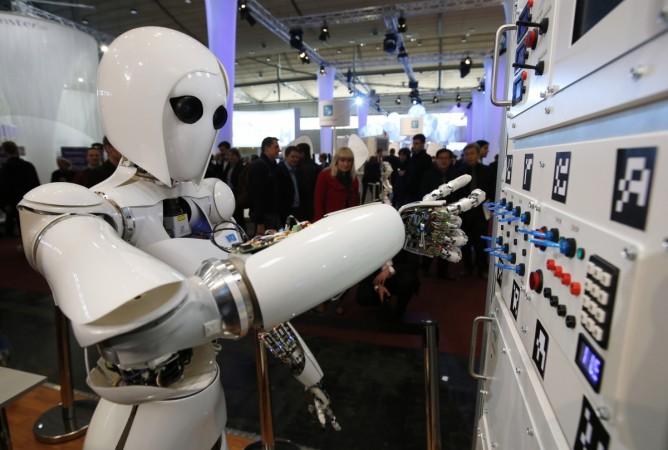
Artificial Intelligence (AI) poses a "real threat" to jobs, according to Vishal Sikka, the CEO and MD of Infosys, India's second-largest IT services exporter. Consultancy McKinsey has estimated a far higher potential for AI to handle jobs now done by human beings. In such circumstances, should the trend of growing automation by organisations be necessarily bad? No, says the chief technology officer (CTO) of Wipro, the Azim Premji-led, Bengaluru-based rival of Infosys.
Read: India's top private banks like ICICI and HDFC rope in robotics to boost services
"For instance, AI can already implement human speech and text in a company's mail room or call center to handle simple information-sharing tasks that used to fall on human representatives," K R Sanjiv wrote for the Entrepreneur India in a recent article.
It's not confined to just normal activities alone and can go far beyond that, according to him.
"Expertise that used to be exclusive to professionals, such as that of engineers and technicians, can now be optimised through the capabilities of machine learning," Sanjiv said.
This, according to the Wipro CTO, is an advantageous proposition for entrepreneurs and has the potential to improve efficiency, increase output and lift morale at workplace if done in a thoughtful manner.
What are the limitations of AI?
"AI isn't the magical answer to all of a company's problems. At least in its current form, AI is not a form of consciousness -- it does not have the mental flexibility and common sense that are essential to human decision-making," Sanjiv said.
The thumb-rule, so to speak
Think of your day-to-day and week-to-week schedules: What tasks feel repetitive or even mind-numbing? Which do you wish you could get off your plate? There's a good chance AI can relieve you of them," the Wipro CTO wrote.
Success story of ICICI Bank
ICICI Bank, India's largest private sector lender, launched "Software Robotics" last September. The "Software Robotics" process about 10 lakh transactions daily, "bringing in unparallelled operational efficiency, higher accuracy and a massive reduction in processing time for customer services," the bank had said.
The number of these robots stood at 200 then and the bank had said it would scale it up to 500 by March this year with deployment across a range of services. "The software robots at ICICI Bank are configured to capture and interpret information from systems, recognise patterns and run business processes across multiple applications to execute activities including data entry and validation, automated formatting, multi-format message creation, text mining, workflow acceleration, reconciliations and currency exchange rate processing among others," the bank said.
IBM tastes success
A recent success of AI in terms of reduced costs was experienced by IBM. Using its AI platform Watson, the company managed to cut down its advertisement cost per click by almost 31 percent, according to an article written by Stephen Upstone, chief executive and founder of LoopMe for The Drum.
Infosys launched its AI platform Mana last September while Wipro also has one, Wipro HOLMES.
The cost savings for the two Indian IT companies by deploying AI is yet to be quantified, though in the coming quarters, they may start giving details of how AI improved their margins.














